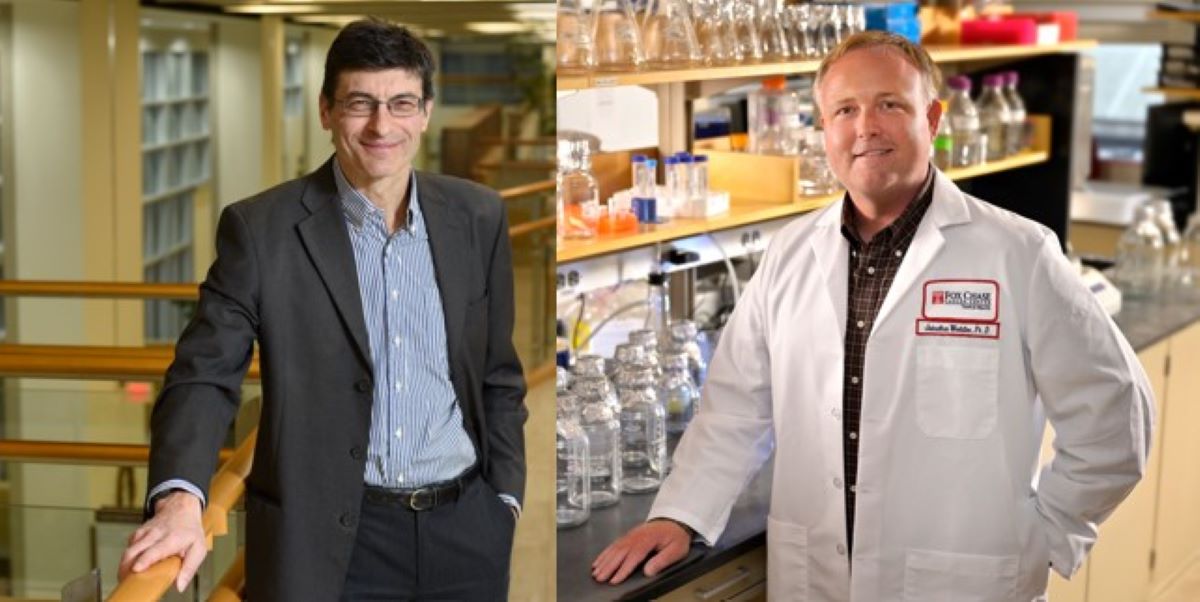
(April 17, 2025)— The Cancer Epigenetics Institute (CEI) at Fox Chase Cancer Center will present new data at a workshop sponsored by biomodal, an omics-based life sciences technology and analytics company, during the American Association for Cancer Research (AACR) Annual Meeting, which is being held April 25-30 in Chicago. The data uncover potential epigenetic mechanisms in DNA repair, amplifications, and rearrangements, advancing understanding of how epigenetic changes impact cancer.
The duet multiomics solution evoC from biomodal enables the 6-base genome via simultaneous, single-base resolution sequencing of the four canonical genetic bases, plus 5-methylcytosine (5mC) and 5-hydroxymethylcytosine (5hmC) from a single low input sample of DNA in one workflow. Genetic information is a vital foundation for all living systems and is generally a static biological property. Epigenetic information reports on dynamic, transitional biology.
“It is essential to capture both types of information to understand normal biology, the transition to disease states, and to classify disease states,” said Alfonso Bellacosa, MD, PhD, a member of the CEI and a Professor in the Nuclear Dynamics and Cancer Research Program at Fox Chase. He will present data during the workshop, which will be held Sunday, April 27 from 1:30-2:30 p.m. EST. Bellacosa will also highlight the ongoing collaboration between the two organizations, which was announced at CEI’s annual symposium last year.
“Changes in DNA methylation known as 5mC have been the first epigenetic alterations described in cancer and have led to the development of successful epigenetic therapies for some specific tumor types. However, methylation patterns are constantly evolving in cancer cells and mapping DNA hydroxymethylation, 5hmC, offers important insights into these dynamic processes of cancer evolution, including resistance to therapy,” Bellacosa said.
“Thus, it is easy to imagine that novel therapeutic approaches will be built on this deeper understanding of cancer epigenetics afforded by combined knowledge of 5mC and 5hmC patterns. The duet evoC solution is a welcome new addition to the technological toolbox of state-of-the-art cancer research, and, in the near future, advanced cancer diagnostics and precision cancer therapy,” he added.
“This strategic collaboration has already enabled significant advances in the understanding of disease mechanisms. Additional studies we are undertaking together are expected to further advance the utility of 6-base genomic data in translational work in cancer epigenetics, with the ultimate aim of improving clinical practice,” said Donna McDade Walker, PhD, Vice President of Product Development and Global Marketing at biomodal.
“Our team is excited to have been part of this strategic collaboration with biomodal. The collaboration bridges use to computational discussion to final data. The relationship has been informative and aligned with key genetic studies our team has done. By having all the information in one assay, direct parallels are able to be assessed,” said Johnathan R. Whetstine, PhD, Director of the CEI and the Jack Schultz Chair in Basic Science at Fox Chase.
“In fact, a mission for CEI is to develop pharma, technology, and biotech partnerships to advance technologies, assays, diagnostics, and novel clinical trials leveraging DNA-dependent regulation. This partnership is an example of how CEI can bring groups together and collaborate on a technology and answer high-impact questions. I look forward to our science and highlights of this partnership being discussed at the AACR meeting,” Whetstine added.
“This strategic partnership reiterates the importance of the Cancer Epigenetics Institute at Fox Chase. It illustrates how the institute is bridging basic science discovery to translational impact through active relationships with industry partners developing novel technologies. These efforts will undoubtedly promote discovery and long-term impact,” said Peter Jones, PhD, a member of the CEI’s external advisory board, Chief Scientific Officer at the Van Andel Institute, and past President of the American Association for Cancer Research.
Fox Chase’s partnership with biomodal encompasses four projects, including one in which Whetstine seeks to understand epigenetic pathways regulating genome stability. Another project headed by Bellacosa seeks to reprogram the nucleic acid methylation changes of melanoma and lung cancer that increase drug resistance. Cihangir Duy, PhD, is using biomodal’s technology to understand the relevance of DNA methylation in senescence-like phenotype cells and define targets regulating tumorigenesis and drug resistance. Finally, another project headed by Hayan Lee, PhD, will use cell-free DNA samples to see if epigenomic changes through epigenetic therapy and in cancer patients are detectable.
biomodal is an omics-based life-sciences technology and analytics company delivering products that bring the dynamism of our ever-changing biology into focus. Our duet multiomics solutions enable more epigenetic information from a single, low input DNA sample without complex, resource intensive bioinformatics or harsh chemical treatment. Our single-base-resolution, resolved sequencing approach unlocks the combinatorial power of genetic and epigenetic information in one workflow, elucidating greater biological insight within the fields of cancer, neurodegenerative disease, and ageing.